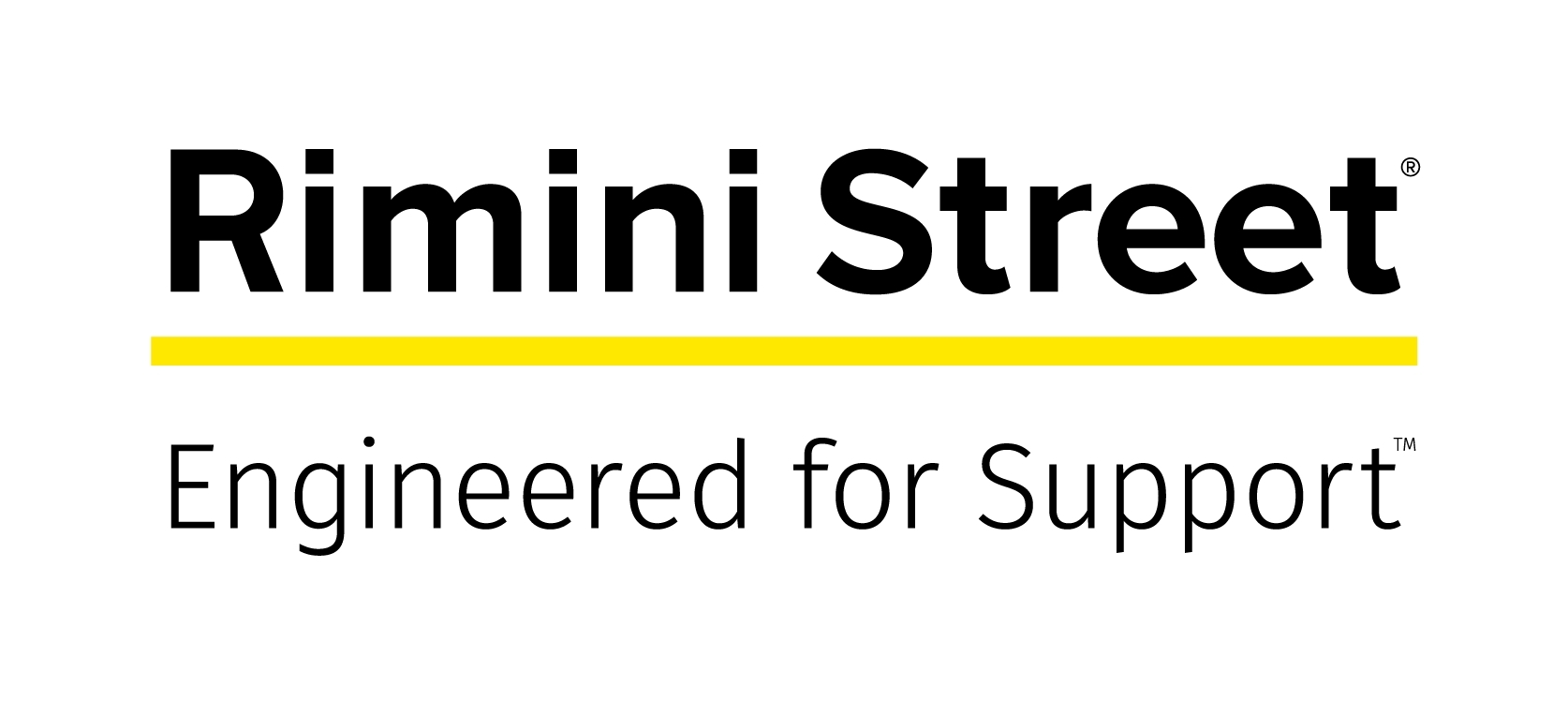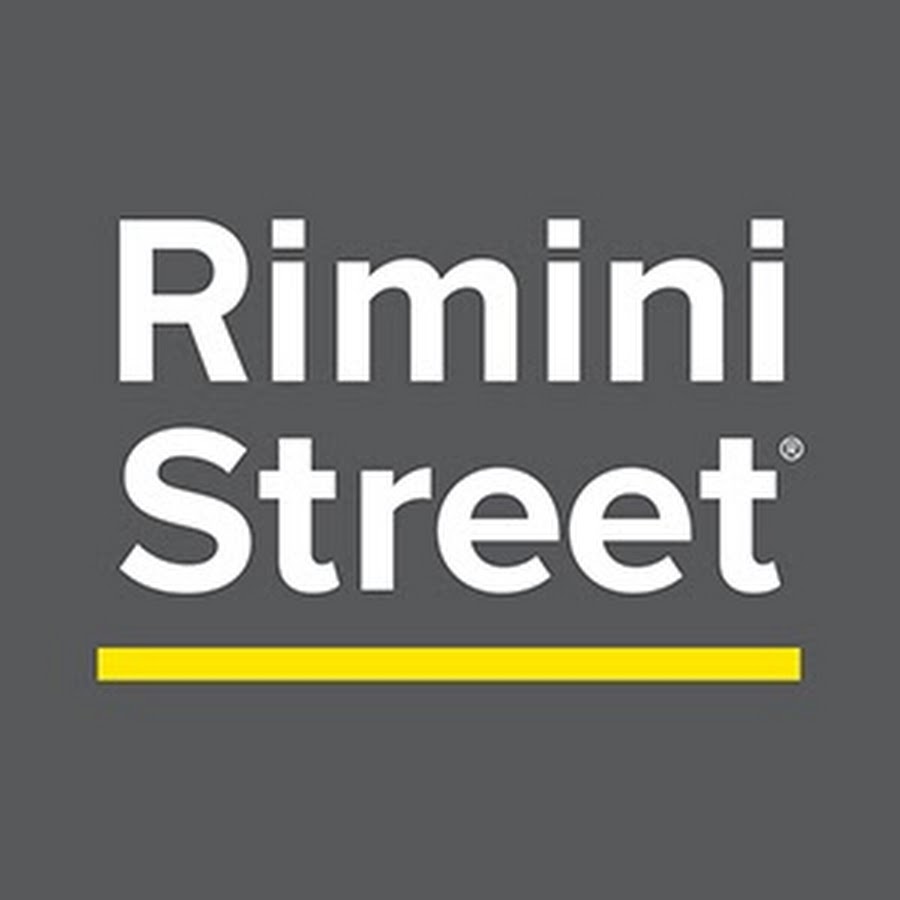Technology
Rimini Street Boosts Investment in Latin America

Rimini Street, Inc., the leading global independent provider of enterprise software support services for SAP SE’s Business Suite, BusinessObjects and HANA Database software and Oracle Corporation’s Siebel, PeopleSoft, JD Edwards, E-Business Suite, Oracle Database, Oracle Middleware, Hyperion, Oracle Retail and Oracle Agile PLM software, has announced its continued strong growth trajectory and investment in the Latin American region due to fast-growing demand for Rimini Street’s premium-level ERP software support for Oracle and SAP licensees.
The Company announced that it has increased its total signed clients in Latin America by 189% year over year in the second quarter ending June 30, 2016, and that it has made numerous strategic hires in the region to meet demand in this fast-growing market. Rimini Street’s best in class support model is a welcome solution to organizations who are interested in growing, expanding and innovating their business in the region despite a difficult economic climate.
Rimini Street also announced that it has increased its recurring Oracle and SAP revenue in Latin America by 57%1 year over year in the second quarter ending June 30, 2016. Today, Rimini Street supports more than 100 global clients with operations in Latin America including well-known local Brazilian companies Atento, Embraer S.A., GRSA, Grupo Rodobens, Infoglobo, MRS Logística S.A. and Tecnisa S.A.
To meet fast-growing demand in the region, Rimini Street has increased its local investment by adding several local senior executives and staff, including highly experienced delivery and support engineers. During the 12 month period ending in June 30, 2016, Rimini Street’s headcount in the region grew 229% year over year compared to the prior 12 month period.
The Latin American economy continues to struggle in 2016 with lower global demand for exports such as oil and gas, mining, and agriculture impacting the entire region. This has had a ripple effect in all areas of business including IT infrastructure costs, with many companies citing a 20 – 30% decrease in their overall IT budgets for 2016. In 2017, this budget line item is expected to decrease another 15%. With these substantial budget challenges, many organizations only have budget to sustain their current IT infrastructure, with insufficient budget left over to fund strategic initiatives.
In Brazil specifically, the country is navigating its worst recession in 25 years. Rimini Street’s unique value proposition – the combination of unsurpassed quality support coupled with substantial savings on annual support costs – has addressed a real economic need. In addition to saving clients up to 90% on their support and maintenance costs, clients are able to run their current software release for a minimum of 15 years, avoiding expensive and unnecessary upgrades to their stable ERP system.
“Brazil’s economy is expected to shrink a further 3.5% this year and organizations are struggling to stay viable in this contracting market, actively seeking solutions for cost reduction while maintaining their competitive edge,” said Edenize Maron, general manager, Rimini Street Latin America. “With a 189% increase in our signed Oracle and SAP clients, it is clear that Rimini Street’s offering is an enormous benefit to Oracle and SAP software licensees in this challenging market – we are helping CIOs realign their IT budgets and unlock extra funds that can be reinvested back into their business. Furthermore, we are aggressively hiring and investing in the best, most experienced on-boarding, support, and delivery talent in our industry to help ensure our client’s success with their switch to Rimini Street independent support.”
Clients in the region who recently made the switch to Rimini Street support include leading Brazil media group Infoglobo.
Infoglobo moved the support of its SAP R/3 4.7 system to Rimini Street in November 2015, and then transitioned to SAP ECC 6.0 while under Rimini Street support. As experienced by all clients who switch to Rimini Street, Infoglobo realized immediate savings that the company can reallocate to more strategic areas of its business.
“Infoglobo has great expectations for our new partnership with Rimini Street. Rimini Street is delivering a more flexible, premium quality service with faster response times, and we get a personalized service approach from our primary support engineer,” said Alexandre Donner, CIO, Infoglobo.
“We are excited to explore new IT investment options now made possible through the significant savings we achieved by switching to Rimini Street support – this includes looking into updating our vast digital infrastructure.”
Atento, the largest provider of customer relationship management and business process outsourcing services in Latin America and Spain, engaged Rimini Street support for its SAP ECC 6.0 platform.
“Atento achieved its leadership position through a dedicated focus on providing superior client service and having a highly engaged employee base, and our SAP system is a critical component of our business operations across 14 countries. However, we did not see the business benefit of an expensive re-platforming to SAP S/4HANA, and wanted to implement a support strategy that would allow Atento to reliably run our current ECC 6.0 system for a minimum of 15 years. We selected a support partner in Rimini Street who could help us maximize our current SAP investment, and at the same time allow us to free up funds to put back into client service initiatives where it really counts,” said Rogerio Ribeiro, CIO, Atento.
Rimini Street Support for Dynamic, Complex Latin American Tax and Regulatory Laws
Licensees in Latin America must manage dynamic, complex tax and regulatory laws that are difficult for both global and local organizations to comply with and keep current with updates to their systems. The process is labour intensive and complex, often requiring thousands of labor hours. In fact, according to the World Bank, corporate tax compliance in Brazil is 14 times lengthier in process than the United States, and longer than any other country in the world2.
In Brazil, Rimini Street provides critical ongoing support for evolving trade and tax regulation under the Sistema Público de Escrituração Digital (SPED) and legal books/taxation compliance – all at no additional cost to clients. Rimini Street has delivered to its clients all complex SPED updates including Nota Fiscal Eletrônica (NFe), Digital Accounting Bookkeeping (ECD), Digital Tax Booking (EFD), Accounting Tax Booking (ECF), Notas Técnicas, Social Security Contributions, SPED Social HR (eSOCIAL), EFD Block-K and EFD Reinf.
To ensure timely and accurate updates, Rimini Street’s dedicated team works directly with government organizations and thousands of additional sources in a patent-pending process to identify, analyze and deliver update capabilities for nearly 200 countries. Globally, the Company has delivered more than 115,000 updates to date, provided by a range of support, development and tax, legal and regulatory (TLR) research professionals in the market.
In addition to delivering the most comprehensive, timely TLR updates to clients around the world, each client is assigned a named, Primary Support Engineer (PSE), and benefits from ultra-responsive 24x7x365 support with response times of 15 minutes or less for Priority 1 cases. Clients also receive support for their own system add-ons and customizations, which are all provided at no additional cost as part of Rimini Street’s global award-winning support. The Company’s superior service model and seasoned engineers have won numerous awards for delivering excellence in customer service.
Technology
Truecaller, AnyMind Group to Expand Direct Sales Footprint

By Modupe Gbadeyanka
The leading global communications platform, Truecaller, now has a strategic direct sales reseller partnership with AnyMind Group, a Business-Process-as-a-Service company for marketing, e-commerce and digital transformation.
Under this partnership, AnyMind Group will serve as the exclusive intermediary for Truecaller’s advertising inventory across Egypt, UAE, Qatar, Saudi Arabia, Israel, Ghana, Nigeria, Morocco, Malaysia, Singapore and Vietnam.
The scope of the partnership is focused specifically on enabling brands and agencies to leverage Truecaller’s premium ad formats to reach highly engaged, high-intent users through relevant, data-driven advertising solutions.
Through this collaboration, Truecaller will accelerate its direct advertising business across the Middle East & North Africa (MENA) and Southeast Asia (SEA) regions.
With a strong on-ground presence and established relationships with leading advertisers and agencies across MENA and SEA markets, AnyMind Group brings deep regional expertise that will support the scaling of Truecaller’s advertising footprint locally.
The partnership is designed to empower brands with impactful placements on Truecaller’s trusted communications platform, helping drive meaningful engagement with users in these fast-growing digital economies.
“As Truecaller continues to expand its global advertising business, partnerships with strong regional players like AnyMind Group are critical to delivering localised expertise and measurable outcomes for advertisers.
“MENA and Southeast Asia represent high-growth markets with evolving digital maturity, and through this collaboration, we aim to bring brands closer to consumers via trusted and contextual communication experiences on our platform,” the Vice President and Global Head for Truecaller Ads Business, Hemant Arora, said.
Also, the Managing Director for Growth Markets at AnyMind Group, Aditya Aima, said, “We are excited to partner with Truecaller to open its inventory to brands across MENA and Southeast Asia. With Truecaller’s scale and trusted user ecosystem, combined with our market depth and networks, we see strong potential to drive more relevant, high-impact advertising outcomes for advertisers looking to deepen engagement in these dynamic markets.”
Technology
Capillary Technologies Acquires SessionM from Mastercard

By Modupe Gbadeyanka
A software product company established in 2012, Capillary Technologies India Limited, has acquired the customer engagement and loyalty company, SessionM, from Mastercard.
This followed a definitive agreement signed by the global leader in AI-powered customer loyalty and engagement solutions with the renowned digital payments firm.
The acquisition of SessionM is the latest in a series of strategic moves by Capillary, following its successful listing on the Indian Stock Exchange in November 2025.
With SessionM in its portfolio, Capillary reinforces its position as a global leader in enterprise loyalty, offering a leading platform to the world’s most sophisticated enterprise brands.
Mastercard has identified Capillary Technologies—consistently recognised as a Leader in The Forrester Wave as the ideal partner to lead SessionM into its next era of growth.
As part of the agreement, a specialised team within SessionM will transition to Capillary, ensuring that the platform’s deep technical expertise is preserved.
SessionM’s esteemed global customer base—which includes Fortune 500 retailers, airlines, and CPG brands—will continue to receive the same high-calibre support and service they experienced before the acquisition.
“M&A has been a key growth strategy for Capillary over the years, and as a public company, we are delivering on that promise to our shareholders and the market.
“By bringing SessionM into our portfolio, we are not just expanding our footprint across the globe; we are further strengthening our loyalty capabilities to deliver one of the industry’s most comprehensive offerings.
“Our mission remains to provide enterprises across industries with specialised, AI-native loyalty technology solutions,” the chief executive of Capillary Technologies, Aneesh Reddy, commented.
Technology
Emergent Ventures, Others Invest $2.2m in Potpie

By Dipo Olowookere
About $2.2 million pre-seed round to help engineering teams unify context across their entire stack and make AI agents genuinely useful in complex software environments has been announced by Potpie.
Potpie was established by Aditi Kothari and Dhiren Mathur, who were determined to unify context across the entire engineering stack and enabling spec driven development.
As generative AI adoption accelerates, most tools focus on surface-level code generation while ignoring the deeper problem of context.
Large language models are powerful, but without access to system-level understanding, tooling history, and architectural intent, they struggle in real production environments.
Traditional approaches rely on senior engineers to manually hold this context together, a model that breaks down at scale and fails when AI agents are introduced.
The platform enables teams to automate high-impact and non-trivial use cases across the software development lifecycle, like debugging cross-service failures, maintaining and writing end-to-end tests, blast radius detection and system design.
It is designed for enterprise companies with large and complex codebases, starting at around one million lines of code and scaling to hundreds of millions.
Rather than acting as another coding assistant, Potpie builds a graphical representation of software systems, infers behaviour and patterns across modules, and creates structured artefacts that allow agents to operate consistently and safely.
A statement made available to Business Post on Monday revealed that the funding support came from Emergent Ventures, All In Capital, DeVC and Point One Capital.
The capital will be used to support early enterprise deployments, expand the engineering team, and continue building Potpie’s core context and agent infrastructure, it was disclosed.
“As AI makes code generation easier, the real challenge shifts to reasoning across massive, interconnected systems. Potpie is our answer to that shift, an ontology-first layer that helps enterprises truly understand and manage their software,” Kothari was quoted as saying in the disclosure.
A Managing Partner at Emergent Ventures, Anupam Rastogi, said, “In large enterprises, the real challenge is not generating code, it is understanding the system deeply enough to change it safely.
“Potpie’s ontology-first architecture, combined with rigorous context curation and spec-driven development, creates a structured model of the entire engineering ecosystem. This allows AI agents to reason across services, dependencies, tickets, and production signals with the clarity of a senior engineer. That is what makes Potpie uniquely capable of solving complex RCA, impact analysis, and high-risk feature work even in codebases exceeding 50 million lines.”
-

 Feature/OPED6 years ago
Feature/OPED6 years agoDavos was Different this year
-
Travel/Tourism10 years ago
Lagos Seals Western Lodge Hotel In Ikorodu
-

 Showbiz3 years ago
Showbiz3 years agoEstranged Lover Releases Videos of Empress Njamah Bathing
-

 Banking8 years ago
Banking8 years agoSort Codes of GTBank Branches in Nigeria
-

 Economy3 years ago
Economy3 years agoSubsidy Removal: CNG at N130 Per Litre Cheaper Than Petrol—IPMAN
-

 Banking3 years ago
Banking3 years agoSort Codes of UBA Branches in Nigeria
-

 Banking3 years ago
Banking3 years agoFirst Bank Announces Planned Downtime
-

 Sports3 years ago
Sports3 years agoHighest Paid Nigerian Footballer – How Much Do Nigerian Footballers Earn














